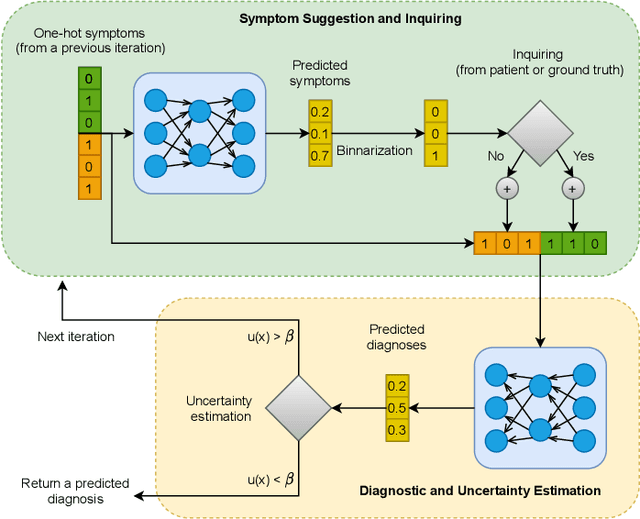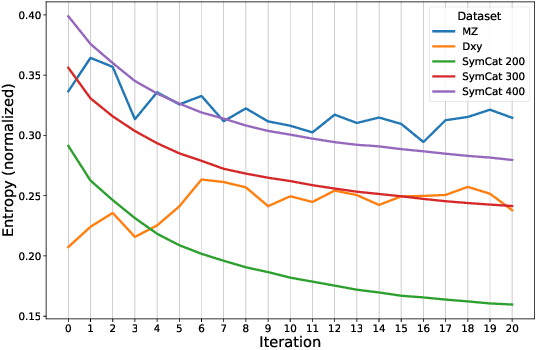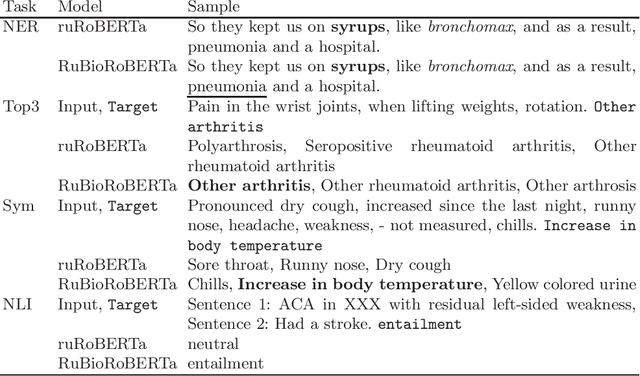Dmitriy Umerenkov
Predicting COVID-19 and pneumonia complications from admission texts
May 05, 2023Abstract:In this paper we present a novel approach to risk assessment for patients hospitalized with pneumonia or COVID-19 based on their admission reports. We applied a Longformer neural network to admission reports and other textual data available shortly after admission to compute risk scores for the patients. We used patient data of multiple European hospitals to demonstrate that our approach outperforms the Transformer baselines. Our experiments show that the proposed model generalises across institutions and diagnoses. Also, our method has several other advantages described in the paper.
NeuralSympCheck: A Symptom Checking and Disease Diagnostic Neural Model with Logic Regularization
Jun 02, 2022



Abstract:The symptom checking systems inquire users for their symptoms and perform a rapid and affordable medical assessment of their condition. The basic symptom checking systems based on Bayesian methods, decision trees, or information gain methods are easy to train and do not require significant computational resources. However, their drawbacks are low relevance of proposed symptoms and insufficient quality of diagnostics. The best results on these tasks are achieved by reinforcement learning models. Their weaknesses are the difficulty of developing and training such systems and limited applicability to cases with large and sparse decision spaces. We propose a new approach based on the supervised learning of neural models with logic regularization that combines the advantages of the different methods. Our experiments on real and synthetic data show that the proposed approach outperforms the best existing methods in the accuracy of diagnosis when the number of diagnoses and symptoms is large.
RuBioRoBERTa: a pre-trained biomedical language model for Russian language biomedical text mining
Apr 08, 2022

Abstract:This paper presents several BERT-based models for Russian language biomedical text mining (RuBioBERT, RuBioRoBERTa). The models are pre-trained on a corpus of freely available texts in the Russian biomedical domain. With this pre-training, our models demonstrate state-of-the-art results on RuMedBench - Russian medical language understanding benchmark that covers a diverse set of tasks, including text classification, question answering, natural language inference, and named entity recognition.
Abstractive summarization of hospitalisation histories with transformer networks
Apr 05, 2022



Abstract:In this paper we present a novel approach to abstractive summarization of patient hospitalisation histories. We applied an encoder-decoder framework with Longformer neural network as an encoder and BERT as a decoder. Our experiments show improved quality on some summarization tasks compared with pointer-generator networks. We also conducted a study with experienced physicians evaluating the results of our model in comparison with PGN baseline and human-generated abstracts, which showed the effectiveness of our model.
 Add to Chrome
Add to Chrome Add to Firefox
Add to Firefox Add to Edge
Add to Edge